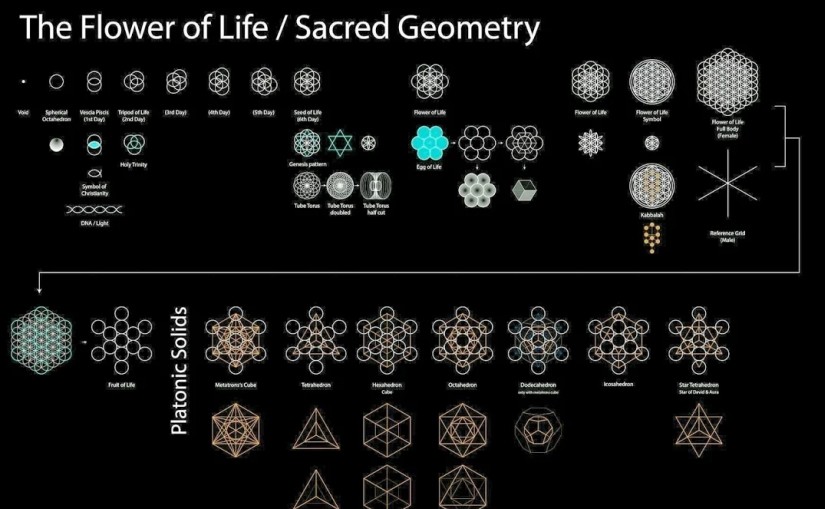I have this vivid image of my old living room. On the wall hung a giant intricate golden-framed picture of Tirupati Balaji, which my father got from his visit to the holy temple.
Just below the huge frame, my brother and I stuck small posters of the pantheon of Gods and Goddesses belonging to all religions and faiths.
I worshiped them, performed rituals, offered flowers, lit agarbattis (incense sticks) and diyas.
That was at age 10. If I had continued the same ritual, I would have become a devout polytheist, and probably with an identity crisis!
Born in a Jain family, studied in a convent school (and eventually became an atheist). My parents never stopped us from worshiping or going to mosques, temples or churches. My siblings and I were raised non-religiously!
Growing up, I started to lose faith in religion.
I have vague memories of the 1993 Bombay riots. I was young, but I still remember, we used to go to our terrace and witness macabre visuals. I could hear men quarreling, rampant vandalism, shop break-ins, vehicles on fire at different corners.
I experienced violence in the name of religion.
I have a memory of this one incident when I was traveling in a rickshaw. I noticed the religious iconography glued above the windshield, which belonged to both ‘Muslims’ and ‘Hindus’. I asked the driver about it. He said, “Neither a Muslim nor a Hindu will torch or destroy my rickshaw”.
This incident had a deep impact on me. It raised many questions about ‘God’. My little mind started questioning the existence of ‘God’. Why there are so many of them, and different for different religions? I could not comprehend at that age.
I had a naive idea about ‘God’. It meant a personal God who is looking after every creature. It was a rudimentary understanding from our mythical stories and social conditioning.
There came a point where I completely lost faith in ‘God’, I became atheist, a non-believer in any personal ‘God’
Later, I pursued my education away from Mumbai. I studied in hostels away from the comfort of my home.
I lost touch with the small little spiritual altar that I had consecrated. I forgot the rituals that I used to offer innocently to the deities. It now remains as a sweet memory.
There came a point where I completely lost faith in ‘God’. I became an atheist, a non-believer in any personal ‘God’.
We are so proud of our culture and the secular framework of our society. We shout from the rooftops about how tolerant our culture is, but I see and experience the ground reality as contrary to this.
Every day I see violence perpetrated in the name of religion. Do we not practice religious hypocrisy? We defy values and ethical teachings of religions. There is a huge gap between what is preached and what is practiced.
We organized and founded these religions on the teachings of the great sages and saints but then forgot them. We left them behind and moved forward with our own agendas.
We created identities based on these religions. We become territorial, as our animalistic nature is, we proclaim, “My ‘God’ is better than yours!”
The irony is each one claiming that their religion is a peaceful and tolerant religion. Hence, all this culminated into my losing faith from all organized religions.
Eastern wisdom traditions have recognized the dual nature of reality. It has recognized ‘Consciousness’ and ‘Matter’ as separate entities
Now, as I experience ‘Life’, I question the nature of this ‘Life’, our existence, our being.
“Who am I?” I invoke the big ontological question!
I dabbled into science and philosophy to find out the nature of this ‘Life’, the universe and where did it all originate.
Science has theories but it still does not have answers. Science has answers for the questions of material nature of existence, the body, but not the metaphysical ones, the mind.
In other words, science does not have an answer for the mind-body problem; it is the hard problem in science.
Science has discovered basic elements, the matter, and categorized them into the periodic table. Yet, science cannot explain Consciousness, the phenomenon of awareness. For science, Mind is nothing but a process of the brain.
Still, how does the brain get the quality of being aware? Where does awareness come from?
Now, due to Albert Einstein’s Theory of Special Relativity, that is, E = mc2, it is believed that matter and energy at the end are same.
In other words, if I can say at the risk of being a reductionist, “matter is nothing but energy”.
Change is the nature of material reality, but there is something mystical and eternal about Consciousness
Science has not yet solved the mind-body problem. It does not recognize ‘Consciousness’ as a separate entity like it considers the elements of the periodic table. Science considers it only as an attribute of the mind, a process of the brain.
Whereas, some eastern wisdom traditions have recognized the dual nature of reality. They have recognized ‘Consciousness’ and ‘Matter’ as separate entities. Can we say that matter is a vessel or a vehicle for consciousness?
Some eastern wisdom traditions believe in monism, that is, the reality is non-dual. They recognize the ultimate reality as only ‘Consciousness’. According to them ‘Matter’ springs from ‘Consciousness’ and that ultimately it is all ‘One’ unified whole.
That is mind-bogglingly fascinating.
Hence, my logical brain draws towards ‘Spirituality’ of the wisdom traditions than towards science or religion.
The mystics, the seers, experience this ultimate unified reality. Be it Jesus, Krishna, Buddha, Mohammad or Mahaveer; they all teach us about this ultimate nature of reality.
Mysticism is experiencing this metaphysical realism.
At one point of time ‘I’ was stardust having a celestial experience and now ‘I’ am having a human experience
The questions of life, the origin of the universe, all remain unanswered. This is my journey from being a polytheist to atheist to an agnostic. Although, the metaphysical and ontological questions still remain!
Someone has aptly put, “we are spiritual beings having a human experience”.
I believe that our material existence is constantly changing from one form to the other. At one point of time ‘I’ was stardust having a celestial experience and now ‘I’ am having a human experience.
This raises some more questions in my mind!
What is it like to be human? What is it like to have a human experience?


Thought provoking!!
Thanks Virang, I am glad you enjoyed reading.
What is it to be a human? I found lots of thoughts and little answers to that when watching this beautiful documentary on films for action. Please have a look!
http://www.filmsforaction.org/watch/human/
Great post Tejas! Keep on writing!
Hey, Anna. Great to hear from you!
Thanks for the recommendation, I will watch the documentary 🙂